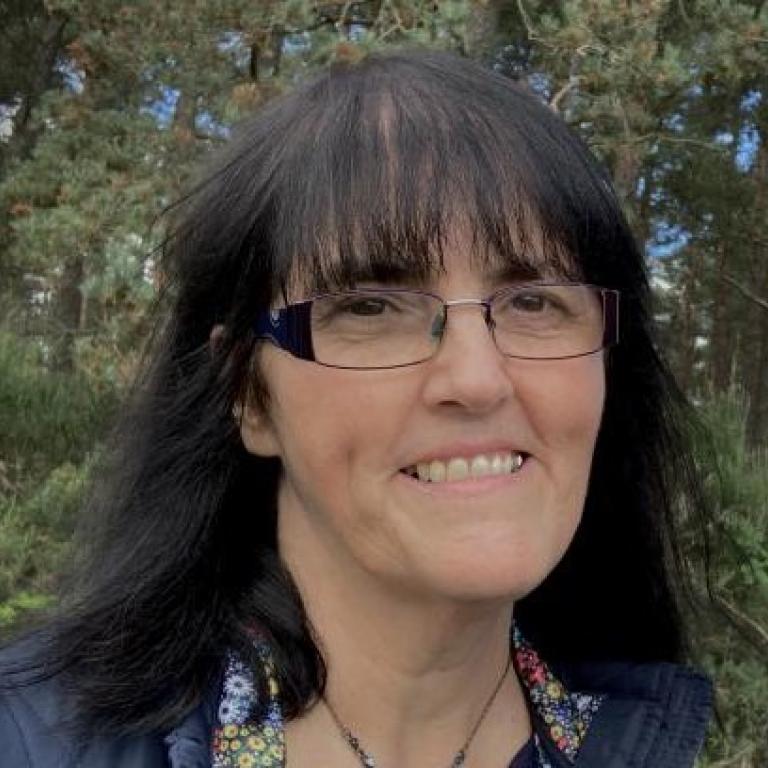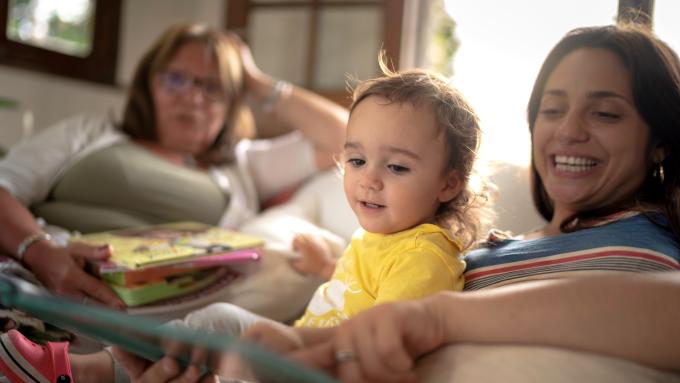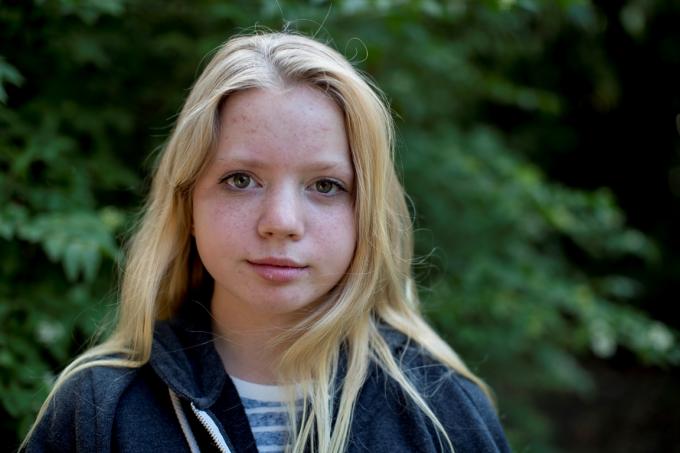There can be a lot of misconceptions about what it takes to be a foster parent, who needs foster care, and what it involves. We've compiled some of the most common questions we receive to bust some of those fostering myths.
Not every child has a loving, stable home. When life gets tough or unsafe at home, children and teenagers need a caring adult to look after them until things can get better. Fostering provides a caring environment for these young people, working with them, their families and the Local Authority or Trust.
Find out more about fostering, or see below for answers to some common questions about fostering.
About fostering
What’s the difference between being a foster parent and foster carer?
At Barnardo’s we prefer to use the term foster carers, but whichever term you use the role is the same. Fostering provides a safe, secure and stable environment for children and young people who cannot live with their birth family.
Do foster carers get paid?
We offer generous financial support, including a taxable income, as well as a weekly fostering allowance to help with the cost of looking after a child.
Find out more about the financial support we offer foster carers.
What’s the difference between fostering and adoption?
There are lots of different types of fostering, people can provide foster care to a particular child or children, for a few days or for a number of years.
Find out more about different types of fostering.
With long term fostering (or permanent foster care) the foster family will care for a child or young person until they reach adulthood, but legal responsibility will continue to sit with the local authority. With adoption, the carers assume legal responsibility for the child. In both situations children benefit from consistency and a greater sense of permanency, stability and belonging within a family.
What support do you offer LGBT+ people who foster?
Any loving person can make an amazing adoptive or foster parent. We are here to help you build your family, regardless of your gender or sexuality. Find out more about fostering with us as an LGBT+ person here.
We offer all our foster carers financial support, extensive training, the chance to be part of fostering support groups, access to a 24 hour helpline and planned short breaks when you need to recharge your batteries.
Find out more about the training and support we offer foster carers.
In addition to help us support adopters and foster carers who are LGBT+, Barnardo’s is a member of New Family Social Network, a UK wide network helping build strong and happy LGBT+ adoptive and foster families.
LGBT+ people who foster through Barnardo’s, become a member of the New Family Social Network, meaning you’ll have access to dedicated online forums and a wealth of events held across the country, some for all the family and some are for the parents only.
Read about the experiences of Barnardo's foster carers from the LGBT+ community.
Is there an allowance for foster carers?
We offer generous financial support, including a taxable income, as well as a weekly fostering allowance to help with the cost of looking after a child.
Find out more about the financial support we offer foster carers.
How long do child/ren stay with foster carers?
That depends on the type of foster care they need. It could be a night, a week or month, or years. If everyone agrees, a long-term foster child can stay with a family after they turn 18.
Find out more about the different types of fostering placement we offer.
Can you work while you foster?
As there is no statutory right to time off to care for foster children, it would preferable if the foster parent works part time at a maximum. Full time workers can still apply to be respite foster carers, caring for children and young people on the weekends and school holidays.
What types of foster care are there?
We provide several types of fostering to ensure we can support and meet each child and young person’s individual needs. This can range from offering a planned break for a young person to try new experiences, to offering a child a stable and loving family setting for several months or years.
Find out more about the different types of fostering placement we offer.
What sorts of children need foster care?
There are so many children who need loving foster parents. These include children from birth to 18 years old, but primarily children over the age of five, children from all different ethnic backgrounds, siblings and children with additional needs.

Our three sons were all grown up [...]. We had both always enjoyed working with young people and so we decided to look into fostering. We chose to go with Barnardo’s as they came highly recommended by [my husband's] colleague, and we were not disappointed.
Sylvia
Foster carer with Barnardo's
Who can foster?
We welcome foster carers from all walks of life. No two children are the same – and the same goes for foster parents. Our carers come from diverse backgrounds, and each bring their own unique life experiences, skills and qualities. This helps us meet the unique needs of every child and young person who needs a foster home.
Read more about what we look for in foster carers, or read about the experiences of some of our foster carers.
You can also find answers below to common questions about who can foster below.
Can foster carers have pets?
Having pets does not prevent you from fostering at all. Pets can, in fact, promote positive behaviour and be seen as a positive influence within a foster family.
Of course, it’s important to ensure that children can be welcomed into an environment with animals which is why, as well as the foster family, the pets will also go through an assessment process which will take into account factors such as the animal’s temperament, their behaviour and their ability to adapt to strangers in their home.
Before a child can join your family, their needs will also have to be taken into account to ensure their safety and wellbeing – for example, if the child is allergic to cats or has a strong fear of dogs, it will be unlikely that they will be matched to your household. However if there are no such concerns, our expert team will work with you to ensure the right steps are taken so the child can interact with your pet and have a healthy relationship.
Can I foster if I already have children living at home?
Some people are reluctant to foster as they are worried about the effect it will have on their own children. A new young person joining a family may bring challenges to family dynamics, and some children may find it hard to share their space and parents’ attention. Others may find it difficult to say goodbye when a foster child leaves.
As part of the application and assessment process, a Barnardo’s social worker will meet with the children in your family to discuss their thoughts and feelings before you start fostering. If, as a family, you pursue your application to foster, we will work hard to ensure an appropriate match between a fostered child and your own family. Your child’s experience will be reviewed regularly, and support will be offered to ensure that their experience of fostering is a happy and positive one.
Can LGBT+ people foster?
We welcome people from all walks of life to apply and have supported LGBT+ foster carers for many years. We believe that if we have a diverse group of foster carers, we can better match children and young people to their perfect home.
Read about the experiences of Barnardo's foster carers from the LGBT+ community.
Can I foster if I’m single?
Yes, you can foster with us if you’re single.
Can I foster if I have a history of mental illness?
We look at the current health and resilience of individuals and couples and how they worked through their mental health issues. It can show resilience, strength and openness.
Is there an age limit to becoming a foster carer?
We are looking for people with life experience and there is no upper age limit for fostering but you need to be over 21 years of age. It is all about what that person can bring to the life of a child in care.
Can I foster if I'm living with HIV?
We want to stress that successfully managing your health, whatever your HIV status (or other illnesses) can show that you are a responsible adult and can be considered for adoption and fostering.
Can I foster if I rent, rather than own, my home?
As long as you have a legally-binding tenancy agreement, you can foster children in a rented house.
Do I need particular qualifications or training to foster?
We provide all the training you need to complete. As one of our foster carers said, "all you need is love and patience".
Find out more about the training and support we offer our foster carers.
Can I foster if I work part- or full-time?
As there is no statutory right to time off to care for foster children, it would preferable if the foster parent works part time at a maximum. Full time workers can still apply to be respite foster carers, caring for children and young people on the weekends and school holidays.

If anyone is considering fostering, I would encourage them to take that first step and call Barnardo’s. The training and on-going support and courses they offer are really great. Barnardo’s puts on fun events for both carers and the child. There are also regular carers’ meeting where you can meet other carers and share your experiences.
Soynnia
Foster carer with Barnardo's
Applying to become a foster carer
Deciding to foster is a big decision to make and you make have lots of questions about what to expect when you apply.
Find out more about the fostering application process or read answers to some frequently asked questions below.
How long does it take to become a foster carer?
It takes on average six months to become an approved foster carer with us.
Do I need to I disclose my sexual orientation or transgender status? If so, when?
Your sexual orientation or transgender status is just one small part of a full picture of your life that we will need to ensure that your placement is the best one for you, so it’s for the best if you are as open about your life as possible. We will never discriminate or judge LGBT+ people, and in fact, we welcome and celebrate diversity amongst our adoptive parents and foster carers.
What questions will I get asked as part of the fostering process?
During the assessment process you’ll be asked about the reasons you would like to foster and your family background. You’ll also need to go through various assessments including police checks/enhanced criminal record checks, medical checks, financial checks and you’ll need professional and personal references. Our assessment process is thorough because we want you to be fully prepared for the challenges and rewards that fostering brings.

The process of becoming a foster carer with Barnardo’s was lengthy, but we understood that the length and the complexity is a good thing. It's good for the children and equally it’s good for potential foster carers, because it allows you to demonstrate your commitment.
Ali
Foster carer with Barnardo's
About fostering with Barnardo’s
At Barnardo’s we are passionate about making a positive difference to the lives of the children and young people we support, as well as our foster carers. We listen and respond to the needs of our carers and would love to talk to you about foster carer if you are new to it or if you already have experience.
Find out more about what Barnardo’s offers foster carers or answers to some common questions below.
Can I transfer from my current foster agency to Barnardo’s?
Yes, if you are a foster carer who is already registered with a fostering agency, you can transfer to Barnardo’s.
Find out more about transferring between fostering agencies.
What training and support does Barnardo’s offer foster carers?
We offer all prospective foster carers a preparation course to help them understand the commitment they are making, develop their parenting skills, and help them understand the special skills foster carers need to care for children who may have experienced trauma and adverse childhood experiences.
Once you are a Barnardo’s foster carer you will have access to a 24 hour out-of-hours advice and support line service provided by Barnardo’s social workers, receive generous financial support, be invited to support groups and family social events, be offered a high level of professional training and development and become a member of the Fostering Network, the UK’s leading fostering charity.
Find out more about the training and support we offer our foster carers.

Type of foster care
There are many different kinds of foster care, specific to each child's situation. Find out more about the many ways you can provide care for a child who needs your help.

Fostering a child
All kinds of children need loving foster carers, and we have a focus on matching children who may need extra care and support from a foster family.

Become a foster carer
The first step towards joining the Barnardo's family is getting in touch. Complete our online form or find details about alternative contact methods here.

